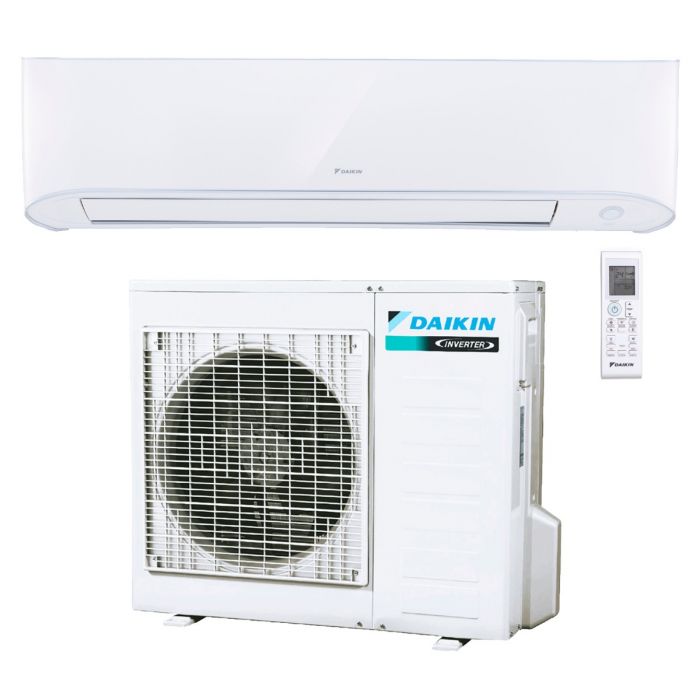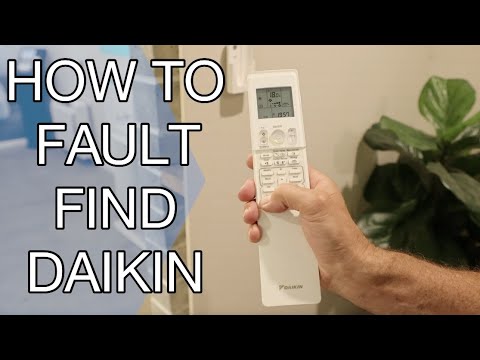Daikin Split Ac Error Code List
Daikin split air conditioners are renowned for their efficiency and reliability. However, like all complex systems, they can occasionally encounter issues. To assist users in diagnosing problems, Daikin units display specific error codes.
Understanding these codes can help in identifying the root cause of an issue and determining the appropriate solution. In this comprehensive guide, we’ll delve into common Daikin split AC error codes, their meanings, possible causes, and suggested solutions.
How to Retrieve Error Codes
Before addressing specific error codes, it’s essential to know how to retrieve them from your Daikin unit. Most Daikin air conditioners allow users to access error codes using the remote controller. Here’s a step-by-step guide:
- Activate the Diagnostic Mode:
- Press and hold the “Cancel” button on your remote controller for about 5 seconds.
- The temperature display should start flashing, indicating that you’re in diagnostic mode.
- Navigate Through Error Codes:
- Press the “Cancel” button repeatedly to cycle through stored error codes.
- When the relevant error code is displayed, the unit will emit a long beep.
- Note the Error Code:
- Once identified, note down the error code for reference.
For a visual demonstration, you can refer to this video:
Common Daikin Error Codes
Below is a detailed list of common error codes, their descriptions, possible causes, and suggested solutions:
System-Related Error Codes
These codes pertain to issues affecting the overall system.
| Error Code | Description | Possible Causes | Suggested Solutions |
|---|---|---|---|
| UA | Indoor-Outdoor Unit Combination Fault | Incompatibility between indoor and outdoor units; incorrect model combination. | Verify that indoor and outdoor units are compatible models. Consult Daikin support if necessary. |
| U0 | Refrigerant Shortage | Insufficient refrigerant due to leakage or improper charging; electronic expansion valve error. | Check for refrigerant leaks and repair them; ensure proper refrigerant charging; inspect the electronic expansion valve for faults. |
| U2 | Drop Voltage or Main Circuit Overvoltage | Voltage supply issues such as under-voltage or over-voltage; power supply instability. | Ensure stable power supply within specified voltage range; check for loose electrical connections; consult an electrician if power supply issues persist. |
| U4 | Failure of Transmission (Between Indoor Unit and Outdoor Unit) | Communication error between indoor and outdoor units; wiring issues; PCB (Printed Circuit Board) defects. | Inspect communication wiring between units for damage or disconnection; reset the system; if the problem persists, consult a qualified technician to check the PCBs. |
Indoor Unit Error Codes
These codes are related to issues within the indoor unit.
| Error Code | Description | Possible Causes | Suggested Solutions |
|---|---|---|---|
| A1 | Indoor PCB Defectiveness | Faulty indoor unit PCB; electrical noise interference. | Reset the system; if the error continues, replace the indoor unit PCB. |
| A5 | Freeze-Up Protector | Indoor heat exchanger temperature is too low; clogged air filter; malfunctioning thermistor. | Clean or replace the air filter; check the indoor heat exchanger thermistor for faults; ensure proper airflow. |
| A6 | Fan Motor Fault | Malfunction of the indoor fan motor; wiring issues; PCB defect. | Inspect the fan motor and its wiring for damage; test the fan motor operation; replace the fan motor or PCB if necessary. |
| C4 | Faulty Heat Exchanger Temperature Sensor | Defective thermistor; poor connection or disconnection. | Check the connection of the heat exchanger thermistor; replace the thermistor if faulty. |
| C9 | Faulty Suction Air Temperature Sensor | Defective suction air thermistor; wiring issues. | Inspect the suction air thermistor and its wiring; replace the thermistor if necessary. |
Outdoor Unit Error Codes
These codes indicate problems within the outdoor unit.
| Error Code | Description | Possible Causes | Suggested Solutions |
|---|---|---|---|
| E1 | Circuit Board Fault | Defective outdoor unit PCB; electrical noise interference. | Reset the system; if the error persists, replace the outdoor unit PCB. |
| E5 | Overload Protector Activated | Overcurrent in the compressor; possible compressor lock or wiring issues. | Check for compressor overcurrent conditions; inspect wiring for damage; replace the compressor if locked. |
| E6 | Faulty Compressor Start-Up | Compressor start-up failure; electrical issues; compressor defect. | Inspect the compressor start capacitor and wiring; test the compressor; replace if faulty. |
| E7 | DC Fan Motor Fault | Malfunction of the outdoor DC fan motor; wiring or PCB issues. | Check the outdoor fan motor and its wiring; replace the fan motor or PCB as needed. |
| E8 | Overcurrent Input | Excessive current detected; possible short circuit or component failure. | Inspect the electrical components and wiring for short circuits; ensure proper current draw; replace faulty components. |
| F3 | High Temperature Discharge Pipe Control | Discharge pipe temperature too high; refrigerant issues; sensor malfunction. | Check refrigerant levels; inspect discharge pipe thermistor; replace if faulty. |
General Troubleshooting Tips
While the above tables provide specific solutions, here are some general tips to keep your Daikin AC running smoothly:
- Regular Maintenance: Schedule periodic maintenance checks to ensure all components are functioning correctly.
- Clean Filters: Dirty filters can impede airflow and cause various issues. Clean or replace them regularly.
- Monitor Power Supply: Ensure that your AC unit receives a stable power supply to prevent voltage-related errors.
- Professional Assistance: If you’re unsure about any error or its solution, it’s always best to consult with a qualified HVAC technician.
By familiarizing yourself with these error codes and their meanings, you can ensure timely interventions, maintain the efficiency of your


